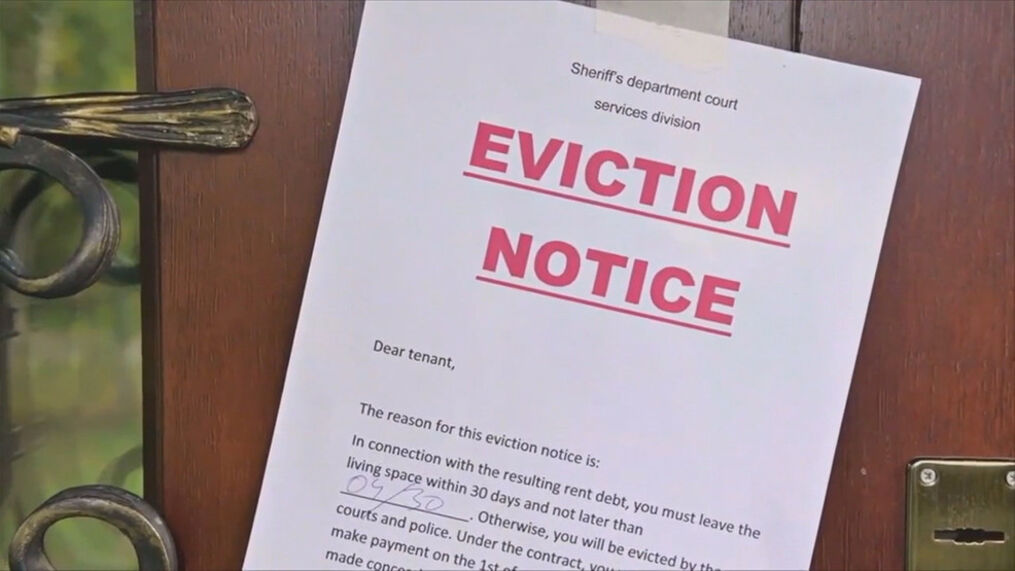Operating a business out of a rental property comes with certain considerations around liability protection and tax benefits. One common strategy business owners employ is to rent apartments under a limited liability company (LLC).
In this article, we will explore whether and how it is possible to rent an apartment under an LLC.
Can I rent an apartment under my LLC?
Yes, it is possible to rent an apartment under an LLC. When renting property for business use, experts recommend setting up the rental under an LLC to separate your personal assets from your business and take advantage of liability protections.
An LLC is a legal structure that protects its owners similarly to a corporation while having an easier setup process than incorporating. LLCs pass through profits and losses to the owners for tax purposes.
Related: Can I Rent An Apartment For Someone Else?
What are the tax benefits of renting under an LLC?

Renting through an LLC provides tax benefits for the business. According to experts at UpCounsel, any business operating continuously out of a rented space and showing a profit can deduct certain expenses from their taxes. This includes Section 179 deductions for qualified business equipment and costs associated with starting up the home office space.
The LLC structure ensures profits and losses from the rental flow through to the owners. Professional advisors can help maximize write-offs to reduce the business's tax liability each year.
How do I set up an LLC to rent an apartment?
To rent an apartment under an LLC, you'll need to formally establish the business entity first. Create the LLC with your state and choose a name that differentiates it from your personal name. Once formed, purchase or rent the apartment in the LLC's name rather than personally.
This helps separate your personal assets from business risks. Consider opening a separate LLC for each rental property to further compartmentalize liabilities. Professional legal help can ensure proper paperwork and asset ownership is established.
What do landlords need to know about renting to an LLC?
Landlords must be aware that the tenant is an LLC rather than an individual when renting to a business entity. They may ask questions about the purpose and operations of the business to understand liability exposures.
Landlords also need to know how many employees will be on site, customer traffic levels, any equipment or tools used, and insurance coverage. The lease terms can specify the permitted commercial activities and address risk transfer. Landlords also have the right to deny renting to LLCs in residential-only buildings due to zoning restrictions.
Can my LLC deduct rental property expenses?
Yes, an LLC that owns a rental property can deduct certain business expenses associated with the property from its taxable income.
This includes repairs, maintenance, utilities, property management fees, insurance, and depreciation of the building and fixtures. The LLC will need to elect to treat the rental property as a business by filing Form 8825 to enable these deductions.
Keep thorough records of all expenses related to buying and maintaining the rental property for tax reporting purposes.
What insurance should an LLC renting a property have?
As a landlord renting to businesses, appropriate insurance coverage is a must through the LLC. This typically includes a general liability policy to protect against claims of bodily injury or property damage on the rented premises.
Coverage limits should match or exceed the LLC's total assets. The LLC should also maintain property insurance to repair or rebuild the property if damaged.
Umbrella insurance provides additional liability limits over the general liability. Professionals can help determine the optimal types and amounts of coverage needed based on the LLC's risk exposure.
Should I put each rental property in its own LLC?
It's generally advisable for landlords with multiple rental properties to establish a separate LLC for ownership and operations of each property.
This helps compartmentalize risks and limits liability from one property impacting others. If faced with a lawsuit over one rental, only the assets of that LLC would be vulnerable rather than all properties under a single entity.
Setting up individual LLCs requires more paperwork but strengthens legal protections in case of incidents impacting one rental while leaving others unaffected.
Conclusion
In conclusion, using an LLC structure allows business owners flexibility in renting apartments and homes for their commercial operations. With setup properly through an LLC, rental real estate can provide tax advantages while protecting personal assets from business risks. Taking a comprehensive approach to insurance, legal structures and record-keeping ensures the optimal benefits of operating under an LLC framework.





